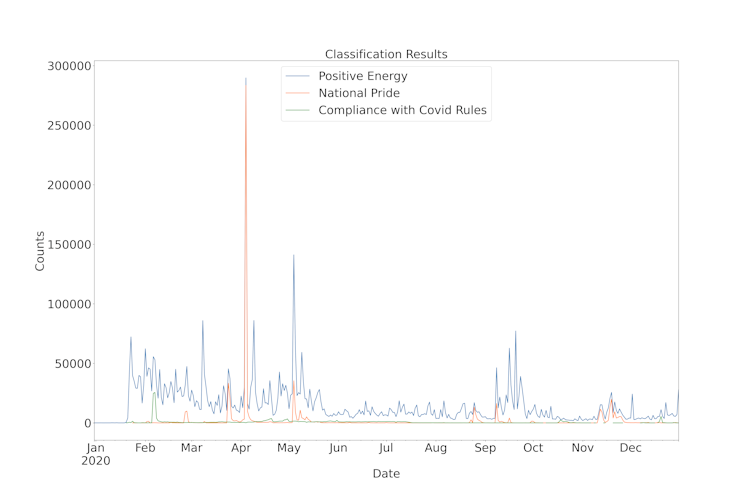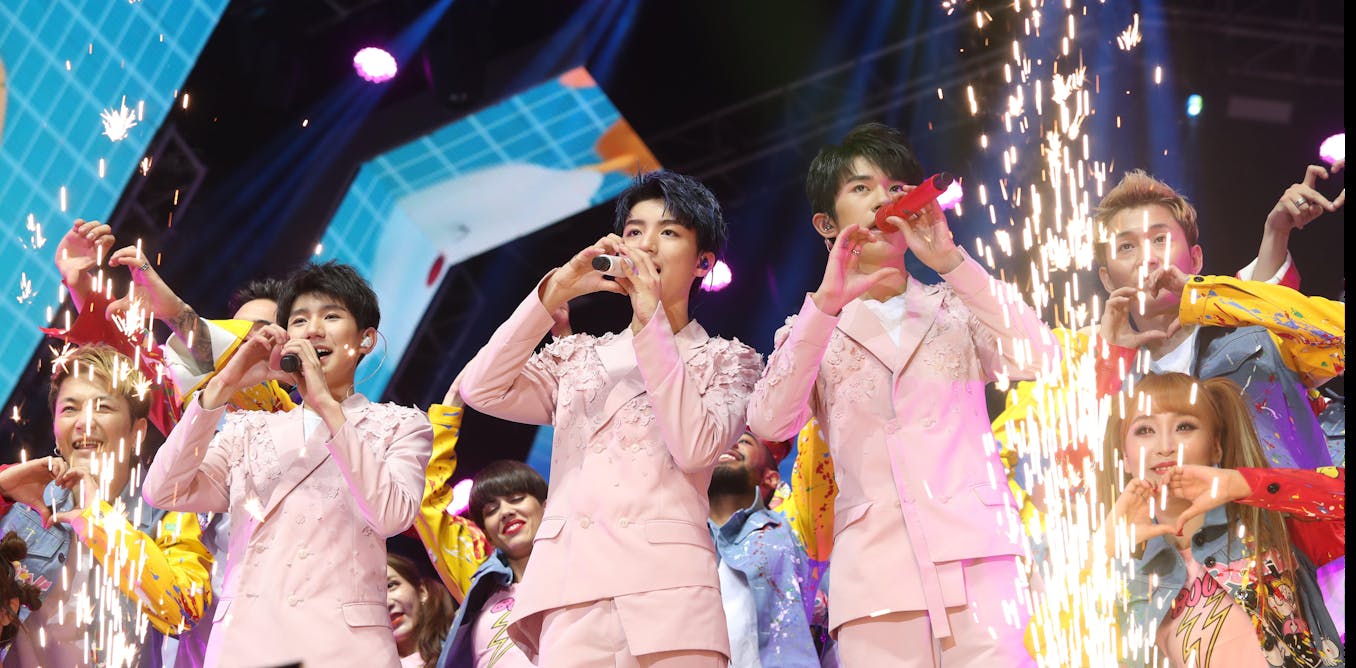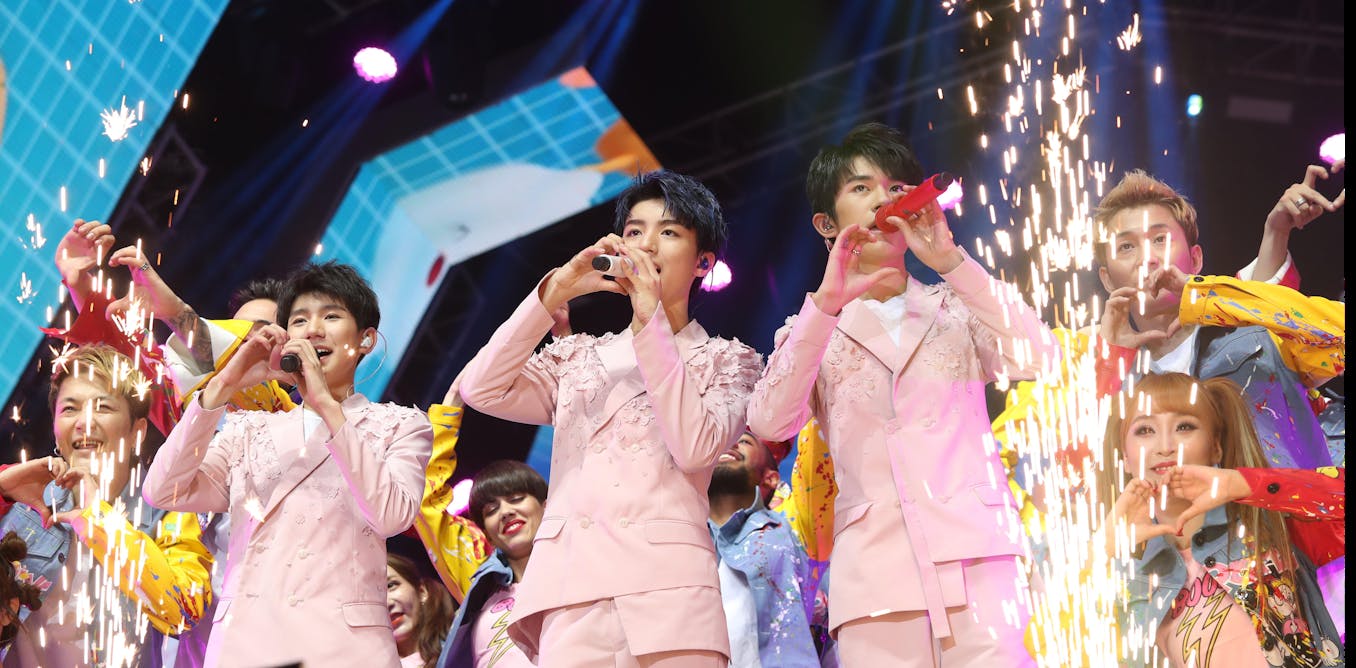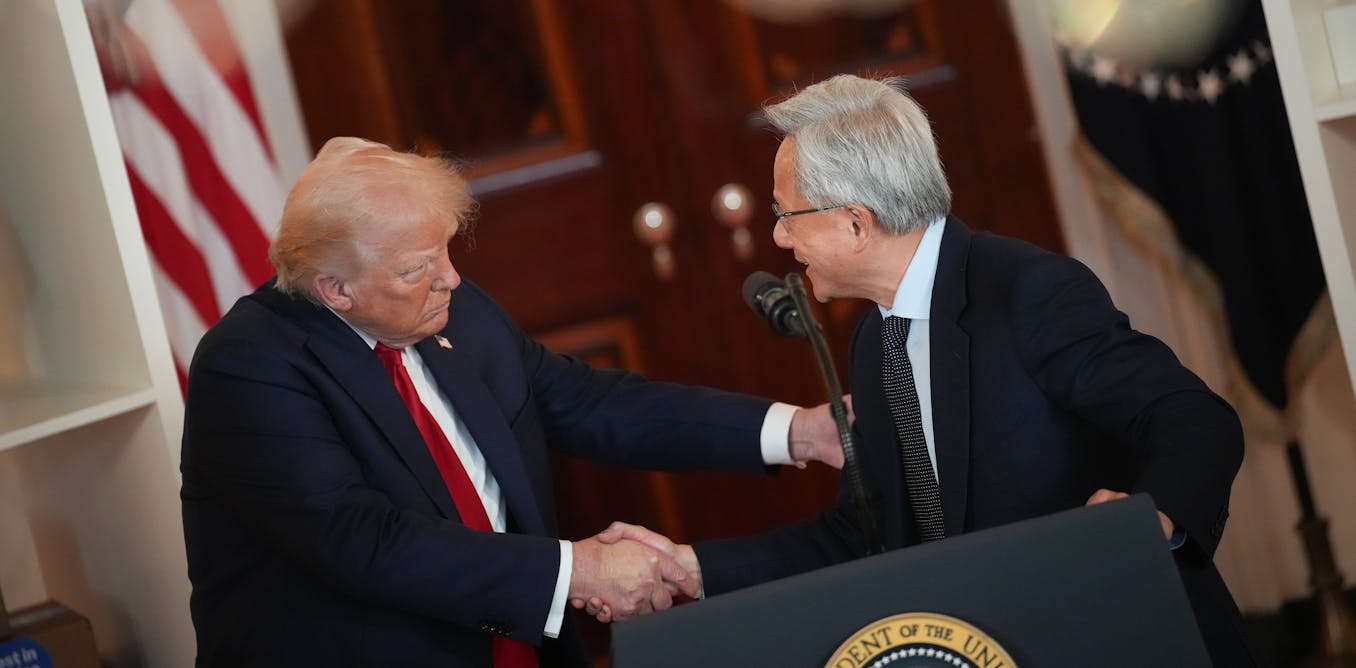Thanks to the efforts of their fans, artists like South Korean band BTS have their faces everywhere in China (where they are known as “idols”) – from the subway, to media articles and brand collaborations.
In 2016, Chinese fans of Jackson Yee (aka Yi Yangqianxi), a former member of popular Chinese boy band TFBoys, celebrated their idol’s birthday in style. They partied on a cruise in Shanghai, bought a video advert in Times Square and flew cake-shaped hot air balloons over London and New York.
As in other east Asian countries, idol fans in China are changing from passive consumers of products to promoters, striving to personally grow their idols’ popularity, reputation and business value. This development added an estimated ¥100 billion (£613 million) to the Chinese idol market in 2020.
Research in 2015 and 2018 found that Chinese idol fans now also act as one of the main digital forces in cyber nationalist activism, supporting the Chinese state’s core values, such as positive energy and patriotism.
In a paper published earlier this year my coauthor Ting Luo and I analysed the ways idol fans co-opted nationalism in their reaction to the COVID pandemic.
We looked at over 6 million posts about the pandemic from December 2019 to December 2020 on Sina Weibo (a twitter-like social media platform in China) that contained promotional messages about idols. Through in-depth interviews with idol fans, we unpacked the ways they engaged with mainstream discourse to publicise and glorify their idols.
These nationalist expressions are often triggered by political incidents and events. The most notable example is the “Diba Expedition”. Following the Taiwan election in 2016, fans organised and swamped the Facebook pages of Taiwanese politicians with emojis and memes, for example.
Idol fans are both organised and disciplined. Our evidence shows that they also used discussions around the COVID pandemic to promote their idols.
How the pandemic influenced fan behaviour
In Weibo posts, idol fans argued that albums, songs and films by their idols relate to the pandemic. Many claim they made a contribution to pandemic efforts and engaged in charity work in the name of their idols.
These activities are typical of the chart-beating behaviours of fandoms, carried out to boost the popularity of their idols.
Silvia Elizabeth Pangaro/Shutterstock
Idol fans in our study and others understand the logic of celebrity ranking lists on Weibo. This is when artists need enough posts, reposts and likes to be on the trending page, upping their profile among the wider public. Fans commonly post and comment on Weibo to create positive images of their idols.
The public images these fans have built are also nationalist. Idols are seen as role models, who make positive contributions to society, even in difficult times. In idol fans’ social media expressions of national pride and compliance to state rules during the pandemic, they posited their idols as loyal to the nation, the people and the party state.
As one fan told us:
We want to make our idol appear as a high-class artist. To achieve the goal, we need evidence of our idol being invited for and participating in performances/shows by the official media or the state. [Without recognition from the state] no matter how well an idol’s album sells, people would consider the idol no more than an online influencer.
Idol fans often interpret “nationalism” as loyalty to national identity and adherence to the state’s policies and rules. Many of them deliberately demonstrate this understanding in their fan posts on social media. For example, idol fans actively joined the state-directed campaign on China’s National Mourning Day and expressed national pride while quoting their idols in the posts.
They also purposefully respond to political and social events as a way to promote their idols’ nationalist ideals, as shown in the chart below.
‘Nationalist’ posts about idols

Author provided (no reuse)
In addition to commercial strategies such as subway advertisements, music streaming and crowdfunding, these fans see participation in events organised by the state and official media as recognition by the state.
Such “official stamps” can bring both material benefits and political status and reputation for their idols, ultimately boosting their popularity.
Our research has shown that idol fans engage not only the commercial logic common in Japanese and Korean K-pop/idol culture (more publicity brings more commercial value) but also the political logic propagated by the state in China (more “official stamps” bring more political value and commercial value in return).
The skilful deployment of nationalism strategies in their everyday life prepares idol fans, so that the mantra of “love for idols” can quickly transform into “love for the state”.

The post “How Chinese superfans became a force of nationalist activism in the name of their ‘idols'” by Yan Wang, Lecturer in Digital Sociology, Lancaster University was published on 06/05/2023 by theconversation.com







































